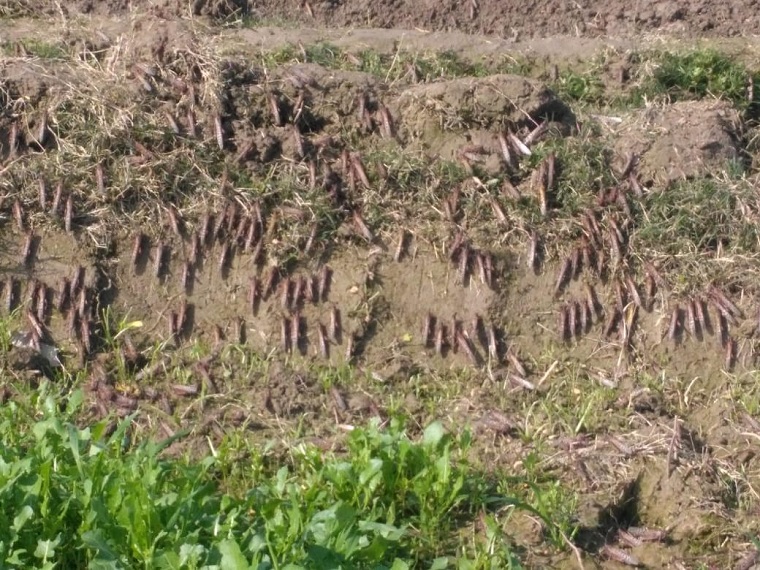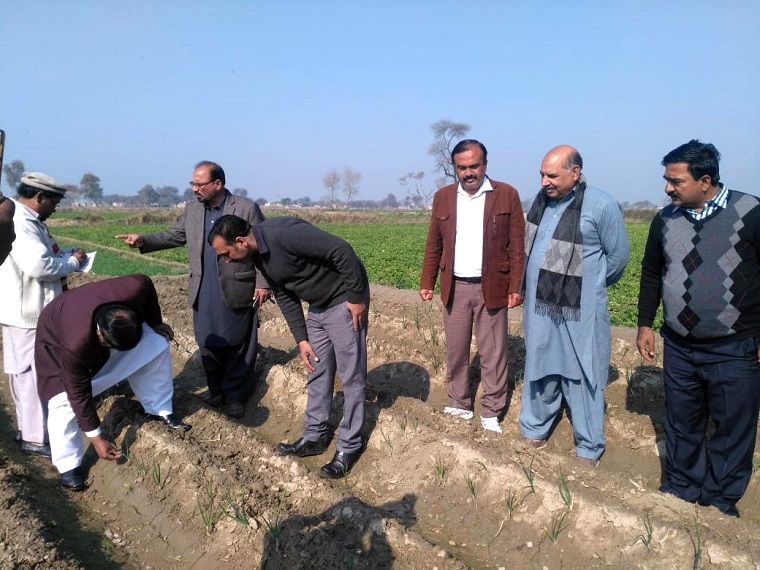
It is alarming that locust, which is a desert insect, is attacking plain cultivated areas first time in the country. The University of Agriculture Faisalabad has sent a team of experts and 50 entomology students in the different districts of the province to analyze the situation,” said UAF Vice Chancellor Dr Muhammad Ashraf.
He was talking to on-visit UAF locust experts team on video conference. The team led by Department of Entomology Chairman Dr Muhammad Mansoor-ul-Hassan comprised Dr Sohail Ahmad, Dr Amir Rasool, Dr Waqas Wakeel, Muhammad Arshad, Dr Ahmad Nawaz, Dr Jam Nazir, and Dr Sagheer. They are visiting districts Pakpattan and Sahiwal. Whereas, the students were surveying locust in the areas of Dera Ghazi Khan, Rajun Pur, Muzaffargarh, Bahawalpur, Rahim Yar Khan, Sahiwal, Pakpattan, Ludhran, Fateh Shah and others. Dr Muhammad Ashraf directed the team to come up with viable recommendation to address the issue and guide farming community regarding mitigation strategies. He said that the situation of locust attack was worse than 1993 which faced the country. He said that this year, locust affected different crops including mustard, onion, peas, barseem fodder, and others. He said that locust has not attacked wheat crop so far. He directed the team to analyze either it would attack wheat this year or not. He showed his concern that no scientific research had been conducted on the issue so far. He said that the university had set up Research and Development Cell on locusts to combat issue incurring a loss of billions of rupees to agriculture sector. He directed the UAF Entomologists to study locust life history, attacked areas, management techniques, various stages, critical stage to hit, and effects of climate changes. Dr Mansoor ul Hassan said that they were preparing a research proposal on locust for in-depth study over the crisis. He directed the farming community of vising districts to apply the spray of lamba cyatholthrin, fipronil, bifenthrin, and chlorpyrifos in the affected areas at the initial stage. He said that they were also collaborating with Plant Protection Department and Agriculture Extension Department to address the problem. They also guided the farming community about the mitigation strategies. He said that locusts travel in swarms consist of 30 to 50 million and cover 150 kilometers to devour 200 tonnes of food a day.



